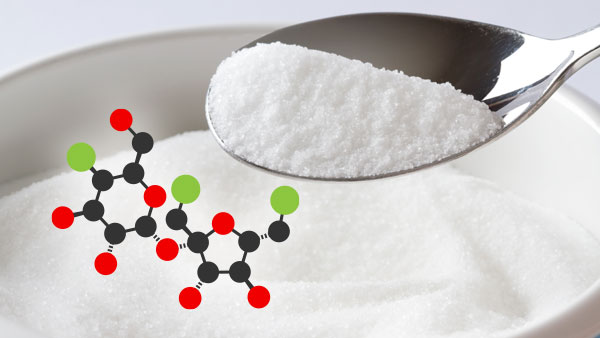As fitness enthusiasts, we have seen many people lose weight on macro counting and agree with the importance of knowing your food intake. Along with macro plans like IIFYM, there is a resurgence of groups promoting anti-diets or intuitive eating.
We believe there is a place for most all plans based on where a person is at in their health journey. They have their virtues. However, let’s take a moment to analyze the relationship between popular plans and problem chemicals, like Sucralose, which is found in many foods and almost all sport supplements.
Now, IIFYM correctly touches on eating a balanced diet of proteins, fats, and carbs based on your health, competition or performance needs, but it misses the critical part: QUALITY macros. Going on an 1800-calorie diet of McDonald’s and Subway can help you lose weight if you burn more calories than you eat every day, but will you be healthy? Not by a long shot. Research shows that nutrient density and quality of the food (processing) can either decrease or increase your risk of disease and longevity, as a recent February of 2018 study showed. https://www.bmj.com/content/360/bmj.k322
Intuitive eating is right about making peace with food. It teaches you nothing about what foods are good for you, cause disease or are proven to help with performance. It’s just about eating whatever, whenever, and without guilt. Again, there’s a place for this but we can talk about that in another post. For now, enter Sucralose.

Sucralose is one example of why many popular eating programs are only a health problem waiting to happen, at least in the long term without nutritional knowledge application.
Sucralose is a zero-calorie artificial sweetener. It easily fits in the IIFYM program, and is super sweet and palatable, which fits into the Intuitive Eating as well.
Sucralose once again has recently come under scrutiny in a first-of-its-kind study published in the European Journal of Nutrition. Sucralose, which you may know better as Splenda, was shown to have an adverse effect on thyroid axis activity. Essentially, Sucralose has the qualities of an endocrine disruptor in mammals. The end result is that thyroid hormone is suppressed, there is an increase in appetite and, consequently, weight gain.
People who replace sugar with Sucralose-containing foods or supplements may actually be doing more harm than if they had just used regular sugar. And the problems don’t end solely with weight issues. In fact, including neurotoxicity, there are over 15 signals of harm linked to this chemical sweetener. Sugar and Sucralose are fairly similar chemically and have been shown to affect the human body the same way. They both put you at higher risk for a poor lipids (fats) profile. This means higher triglycerides, lower good cholesterol levels, and higher bad cholesterol levels. All this spells an increased risk of heart attack, stroke, and coronary artery disease.
Sucralose is essentially a poison to the human body. It’s acidic, addictive, and offers no nutritional value. Your body starts craving sweeter and sweeter food, making it progressively harder to reverse the damage as your metabolic function suffers and you’re always feeling hungry. This is the exact opposite of what you want no matter what your goal.

The real bad news for intuitive eaters is that Sucralose creates an intuitive desire for more sweets. Since it doesn’t digest properly based on its chemical structure, it sends signals to the brain to crave even more sweets. You will naturally want more sugary, sweet, and extremely unhealthy foods. Not good for longevity or your risk of disease.
Artificial sweeteners can cause temporary reactions, like headaches and migraines, to more serious ones, like cardiovascular disease, obesity, type II diabetes, kidney damage, and more.
So, are you ready to make some nutritious dietary changes and further your education on food? Start today by cutting out Sucralose and aspartame from your foods and supplements. This will help you make the changes necessary to achieve optimal health, whatever that means to you. 😊
